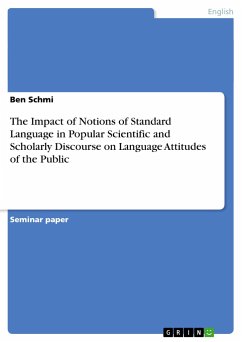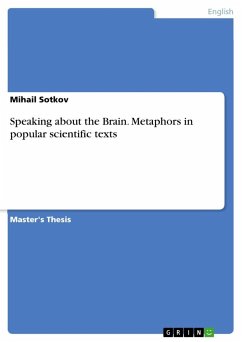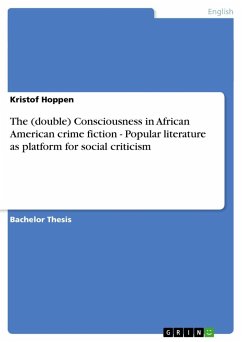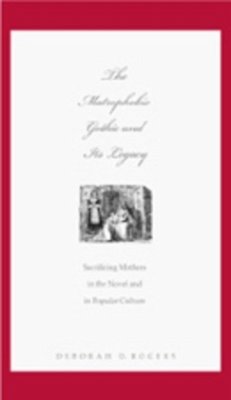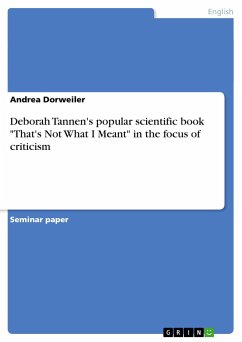
Deborah Tannen's popular scientific book "That's Not What I Meant" in the focus of criticism

PAYBACK Punkte
0 °P sammeln!
Seminar paper from the year 2004 in the subject English Language and Literature Studies - Linguistics, grade: 1, University of Duisburg-Essen, course: Proseminar - Language and Gender, language: English, abstract: 1.IntroductionThe reason why popular scientific books are very successful is probably that an overview of the topics of modern science and an understanding of the main ideas are of interest to most people. But scientific literature does not only use a style too complicated for the "ordinary", not academically educated person. It also is too extensive and contains many, at times confu...
Seminar paper from the year 2004 in the subject English Language and Literature Studies - Linguistics, grade: 1, University of Duisburg-Essen, course: Proseminar - Language and Gender, language: English, abstract: 1.IntroductionThe reason why popular scientific books are very successful is probably that an overview of the topics of modern science and an understanding of the main ideas are of interest to most people. But scientific literature does not only use a style too complicated for the "ordinary", not academically educated person. It also is too extensive and contains many, at times confusing, details that are of no interest to a "normal" person. So for a person just trying to get the main drift of a scientific topic, it is on the one hand hard to deal with the scientific vernacular and on the other hand almost impossible to filter the information of real importance from other information that is not as important.Popular scientific books seem to be the solution for people not academically interested in a topic. Here the authors can concentrate on the basics and foundations of knowledge, going not too much into the unnecessary detail. They are not bound to the strict structures of scientific literature, but can explain simply with examples from real life.But more important is the fact that most people in our society want to be entertained rather than taught and find the academic side of science simply boring. The colloquial style of writing in popular scientific literature, the colourful examples that draw relations to the readers' own life and the sometimes humorous descriptions add to the pleasure of the audience and render this kind of literature not only informative but in the first place entertaining.Though it may be true that most people read popular scientific books only for entertainment, it is also true that with this literature the ideas and discoveries of modern sciences become more transparent not only for a small academically educated group but for everybody who is interested in it. Of course they can only "scratch the surface" of the actual scientific knowledge. In order to have a greater understanding of the science in question popular scientific literature cannot replace scientific literature.Popular scientific books are published with topics of many different sciences from all fields. Deborah Tannen is one of the most successful authors of popular scientific books in linguistics. She is professor of linguistics at Georgetown University in Washington D.C. and wrote numerous books, including the bestsellers That's Not What I Meant (1986) and You Just Don't Understand (1990) .(1)[...]______(1) cf. Tannen, Deborah (1986) That's Not[...]





